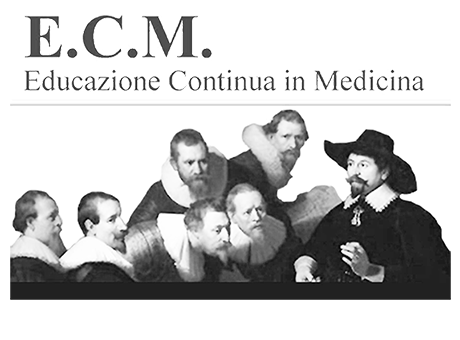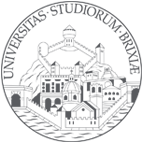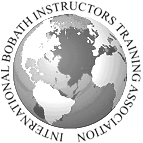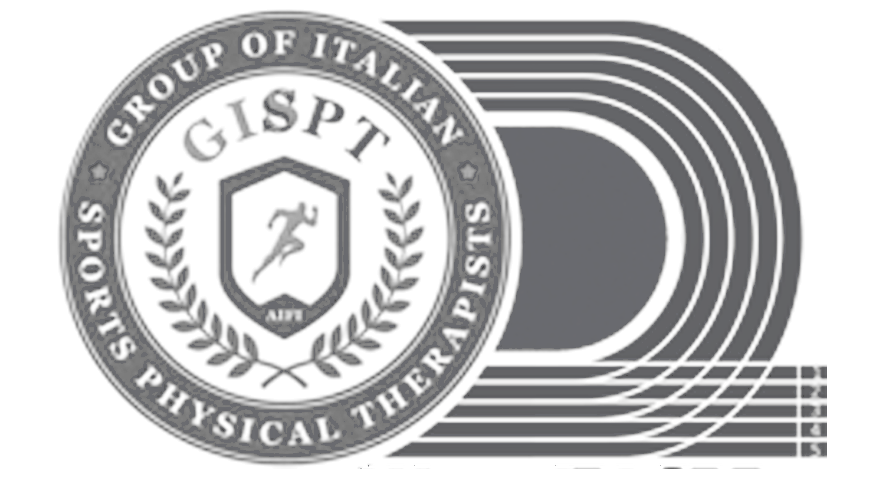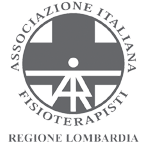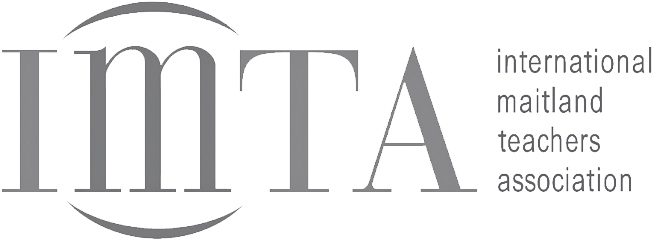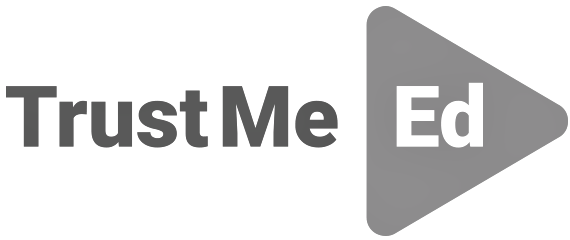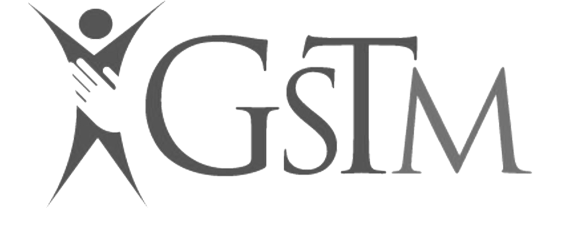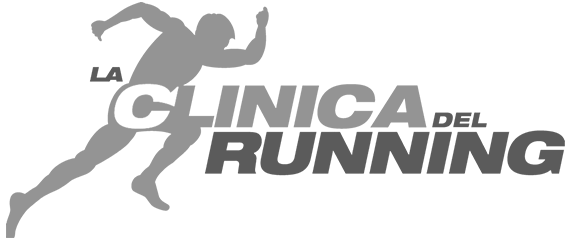December 9, 2024
EM334: Bobath E.B.T.A. Course basic level: Re-education of infantile cerebral palsy and similar neurological conditions. Bobath concept
-
Physiotherapist, EBTA Tutor, EBTA Group Italy
-
Liliana Zerbino
-
Psiche Giannoni
-
Giuseppe Borgo
-
Francesca Gheduzzi
-
Giuseppe Branchi
-
Monica Panella
-
Riccarda Barbieri
Introduction
The Bobath concept is a rehabilitation approach based on the problem solving model, aimed at the evaluation and treatment of children with disorders of function, movement and postural control, caused by damage to the central nervous system or by genetic, rare or syndromic diseases. In particular, the current intervention, according to the Bobath Concept, is enriched by the contribution of new theories on motor control and learning, neuroplasticity and biomechanics. The emphasis of the intervention remains on optimizing function. Normal and pathological motor behavior is currently interpreted in the light of ecological and systemic models and in the light of the theory of dynamic systems. This led the intervention to focus on movement facilitation processes aimed at improving the child's interaction with the environment. The inhibition of spasticity and pathological movement patterns, as a treatment goal, is currently outdated. The goal of treatment is to optimize function by improving postural control and function through facilitation. Repetition in variable contexts and with diversified problem-solving strategies is a fundamental element for inducing stable and generalizable change. To induce this change, proprioceptive and haptic channels are mainly used. This information is fundamental for learning processes but the Bobath Concept obviously recognizes the importance of pro-active feedforward processes. Error is recognized as an important element in the learning process. The Bobath concept also provides for a global involvement of all the reference figures that revolve around the child (family, medical specialists, care givers, specialized rehabilitation workers); in this way the treatment takes on a continuous dimension throughout the day and is not limited to the "simple" intervention carried out in the therapeutic setting. The Bobath concept, therefore, involves the many aspects of the child's social life and also deals with daily life activities such as parental care, school activities and free time experiences; the involvement of all the relevant figures in the life of the child with complex pathology means that the experiences experienced during the therapy session can be used profitably in daily life to fully develop the child's evolutionary potential.
General contents and objectives of the training event
The aim of the course is to provide theoretical knowledge and practical experience on clinical evaluation and the know-how to best respond to the priority and essential needs of children affected by P.C.I., genetic pathologies, syndromes and rare diseases. The quality of the evaluation, clinical reasoning and task analysis, through a relational, sensorimotor and cognitive approach, will help the child to obtain the fundamental prerogatives for his growth path, avoiding the onset of further difficulties or possible situations of worsening compared to the initial clinical picture. The training and professional development intervention also aims to highlight the points of contact between the Bobath Concept and the ICF.
Process skills
The proposed course will represent a moment of sharing theoretical-practical knowledge, aimed at improving the rehabilitation process using an internationally recognized intervention and evaluation approach.
Specific teachings The course analyzes and evaluates the following themes: Introduction to the Bobath concept; the organization and facilitation of movement; perception and movement (body communication); neural organization; the theories of movement control models; learning and executing movement; learning motor skills; the meeting points between the Bobath concept and the ICF classification system; the importance of clinical reasoning; fetal growth; the neurodevelopmental growth of the child; the development of the rehabilitation project according to the Bobath concept; the different forms of p.c.i.; the development of manual skills; functional problems of the upper limb; the adaptation of games to pathology; nutrition and dysphagic problems; language disorders; augmentative and alternative communication; tissue modification; visual problems in the different forms of PCI; the role of the family and the various relational figures of reference in the execution and evolution of the rehabilitation project.
Teaching methodology
The course is structured around 344 hours of teaching. The teaching activity will be divided into: master classes; series of reports on pre-arranged topics; technical demonstrations by the teachers, without direct performances by the students; presentation of problems or clinical cases in plenary session; rehabilitation treatments by all participants.
The course is recognized by the European Bobath Tutor Association, which regulates its contents and teaching methods, and guarantees the training path of the tutors.
In collaboration with:
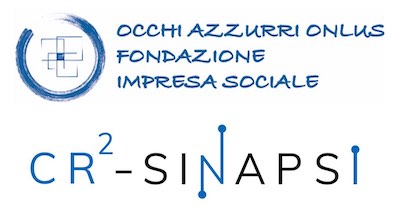
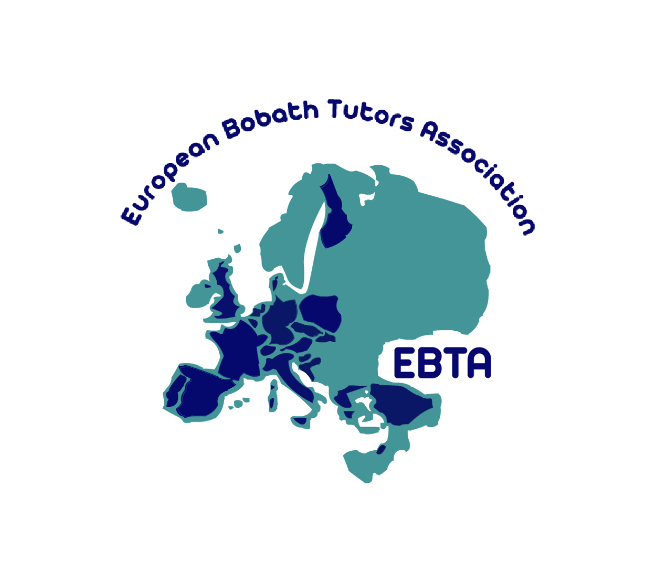
Intended for
Payments
- Deposit €900.00 within 7 days from the registration
- 2nd deposit €850.00 by date November 8, 2024
- 3rd deposit €850.00 by date January 31, 2025
- Deposit €850.00 by date March 31, 2025
- Balance €850.00 by date May 30, 2025
Calendar
II Module: 08-12 January 2025
III Module: 12-16 February 2025
IV Module: 04-09 March 2025
V Module: 08-13 April 2025
VI Module: 07-11 May 2025
VII Module: 11-15 June 2025
VIII Module: 10-14 September 2024
language
Course Location: Centro CR2 SINAPSI Cremona
SCHEDULE
First module: 9-14 December 2024
First day
08.30 – 09.30 | Registration of participants and presentation of the EBTA Basic Course
09.30 – 10.45 | Master's lesson: The antigravity response and balance
10.45 – 11.00 | Coffee break
11.00 – 13.00 | Practical/technical activities: analysis of posture and movement, balance test
1.00pm – 2.00pm | Lunch break
2.00pm – 4.30pm | Role-playing: experimentation with movement in pairs/small groups
4.30pm – 5.30pm | Plenary discussion: general discussion
Second day
08.30 – 10.45 | Master's lesson: Relationship between antigravity competence and functional activity
10.45 – 11.00 | Coffee breaks
11.00 – 13.00 | Role playing: functional activities in everyday life, experimentation in small groups
1.00pm – 2.00pm | Lunch break
2.00pm – 4.00pm | Role playing: practical/technical activities: analysis of posture and movement
4.00pm – 5.30pm | Plenary discussion: general discussion
Third day
08.30 – 10.45 | Master's lesson: Relationship between antigravity competence and functional activity
10.45 – 11.00 | Coffee breaks
11.00 – 13.00 | Role playing: functional activities in everyday life, experimentation in small groups
1.00pm – 2.00pm | Lunch break
2.00pm – 4.00pm | Role-playing: practical/technical activities: analysis of posture and movement
4.00pm – 5.30pm | Plenary discussion: general discussion
Fourth day
08.30 – 10.45 | Master's lesson: History and evolution of the Bobath concept
10.45 – 11.00 | Coffee break
11.00 – 12.30 | Master's lesson: relevance of the Bobath concept
12.30 – 13.00 | Plenary discussion: general discussion
1.00pm – 2.00pm | Lunch break
2.00pm – 4.30pm | Role-playing: movement workshop in pairs/small groups
4.30pm – 5.30pm | Plenary discussion: general discussion
Fifth day
08.30 – 10.45 | Master's lesson: The meeting points between the Bobath concept and the ICF
10.45 – 11.00 | Coffee breaks
11.00 – 12.00 | Master's lesson: Management of the rehabilitation project: from evaluation to prognosis
12.00 – 12.30 | Small group work: evaluation of the video proposed by the teacher
12.30 – 13.00 | Discussion in plenary session: discussion on the proposed topics
1.00pm – 2.00pm | Lunch break
2.00pm – 4.00pm | Master's Lesson: Evaluation tools in pediatric age
4.00pm – 4.30pm | Small group work: observation of a video proposed by the teacher or demonstration of a treatment by the teacher
4.30pm – 5.30pm | Discussion in plenary session: discussion on the topics addressed. Suggested bibliography/conclusions
Sixth day
08.30 – 10.45 | Small group work: observation of a video proposed by the teacher and discussion in the plenary session
10.45 – 11.00 | Coffee breaks
11.00 – 12.00 | Role-playing: movement workshop in pairs/small groups
12.00 – 13.00 | Small group work: evaluation of the video proposed by the teacher
1.00pm – 2.00pm | Lunch break
2.00pm – 4.00pm | Small group work: observation of a video proposed by the teacher
4.00pm – 5.00pm | Discussion in plenary session: discussion on the topics addressed.
5.00pm – 5.30pm | Suggested bibliography/conclusions.
Second module: 8-12 January 2025
First day
08.30 – 10.45 | Master's Lesson: From fetal life to birth: the skills of the fetus
10.45 – 11.00 | Coffee breaks
11.00 – 12.30 | Small group work: observation of videos proposed by the teacher
12.30 – 13.00 | Discussion in plenary session: discussion on the topics addressed
1.00pm – 2.00pm | Lunch break
2.00pm – 4.30pm | Role-playing: practical/technical activities: analysis of the posture and movement of the newborn/infant
4.30pm – 5.30pm | Discussion in plenary session: discussion on the topics addressed
Second day
08.30 – 10.45 | Master's Lesson: The first trimester of life
10.45 – 11.00 | Coffee breaks
11.00 – 13.00 | Small group work: observation of videos proposed by the teacher/comparison with the neurodevelopmental growth of the pathological newborn/infant
1.00pm – 2.00pm | Lunch break
2.00pm – 4.00pm | Technical demonstration: observation of a newborn and his family by the teacher
4.00pm – 4.30pm | Small group work: completion of the evaluation form proposed by the teacher
4.30pm – 5.30pm | Discussion in plenary session: discussion on the observation made
Third day
08.30 – 10.45 | Master's Lesson: The second trimester of life
10.45 – 11.00 | Coffee breaks
11.00 – 12.00 | Technical demonstration: observation of a newborn and his family by the teacher
12.00 – 12.30 | Small group work: completion of the evaluation form proposed by the teacher
12.30 – 13.00 | Discussion in plenary session: discussion on the observation made
1.00pm – 2.00pm | Lunch break
2.00pm – 4.00pm | Role-playing: experimentation with movement in pairs/small groups
4.00pm – 4.30pm | Discussion in plenary session: discussion on the postures/movement experienced
4.30pm – 5.30pm | Small group work: problem solving on topics proposed by the teacher
Fourth day
08.30 – 10.45 | Master's Lesson: The third trimester of life
10.45 – 11.00 | Coffee breaks
11.00 – 12.00 | Technical demonstration: observation of an infant by the teacher
12.00 – 12.30 | Small group work: completion of the evaluation form proposed by the teacher
12.30 – 13.00 | Discussion in plenary session: discussion on the observation made
1.00pm – 2.00pm | Lunch break
2.00pm – 4.00pm | Small group work: problem solving on issues relating to neonatal handling
4.00pm – 4.30pm | Discussion in plenary session: observation of a video (daily caregiving gestures)
4.30pm – 5.30pm | Small group work: Compilation of the evaluation form proposed by the teacher
Fifth day
08.30 – 10.45 | Master's Lesson: The fourth quarter of life
10.45 – 11.00 | Coffee breaks
11.00 – 12.00 | Master's Lesson: From 12 to 18 months of life - Part 1
12.00 – 13.00 | Master's Lesson: From 18 to 36 months of life - Part 2
1.00pm – 2.00pm | Lunch break
2.00pm – 3.00pm | Technical demonstration: observation of a child by the teacher
3.00pm – 3.30pm | Small group work: problem solving
3.30pm – 4.30pm | Discussion in plenary session on the topics addressed
4.30pm – 5.30pm | Suggested bibliography/conclusions
Third module: 12-16 February 2015
First day
08.30 – 10.45 | Master's Lesson: Definition of PCI
10.45 – 11.00 | Coffee breaks
11.00 – 13.00 | Master's Lesson: Classification of PCI - Etiology-Epidemiology
1.00pm – 2.00pm | Lunch break
2.00pm – 4.00pm | Discussion in plenary session: observation of videos on the classification of PCI
4.00pm – 4.30pm | Small group work: problem solving inherent to the topic addressed
4.30pm – 5.30pm | Discussion in plenary session: discussion on the observations made
Second day
08.30 – 10.45 | Master's Lesson: Guide to evaluation: observation of the spontaneous and interactive behavior of the newborn and older child and formulation of the therapeutic project
10.45 – 11.00 | Coffee breaks
11.00 – 13.00 | Master's Lesson: Guide to clinical reasoning
1.00pm – 2.00pm | Lunch break
2.00pm – 4.00pm | Technical demonstration: observation and treatment of a child by the teacher
4.00pm – 4.30pm | Small group work: completion of the evaluation form proposed by the teacher
4.30pm – 5.30pm | Discussion in plenary session: discussion on the observation/assessment carried out and analysis of the treatment
Third day
08.30 – 10.45 | Master's Lesson: The bilateral spastic form: the child with spastic tetraparesis: characteristics of the severe, moderate, mild motor picture
10.45 – 11.00 | Coffee breaks
11.00 – 12.30 | Master's Lesson: Natural evolution of the motor picture: rehabilitation treatment
12.30 – 13.00 | Discussion in plenary session: discussion on the topic addressed
1.00pm – 2.00pm | Lunch break
2.00pm – 4.00pm | Technical demonstration: observation and treatment of a pathological child by the teacher
4.00pm – 4.30pm | Small group work: filling in the observation/evaluation/treatment form.
4.30pm – 5.30pm | Discussion in plenary session: discussion on the observation carried out and analysis of the treatment
Fourth day
08.30 – 10.45 | Master's Lesson: The bilateral spastic form: the child with diplegia: characteristics of the motor picture
10.45 – 11.00 | Coffee breaks
11.00 – 13.00 | Master's Lesson: Natural evolution of the motor picture: rehabilitation treatment
1.00pm – 2.00pm | Lunch break
2.00pm – 4.00pm | Technical demonstration: observation and treatment of a pathological child by the teacher
4.00pm – 4.30pm | Small group work: filling in the observation/evaluation/treatment form.
4.30pm – 5.30pm | Discussion in plenary session: discussion on the observation carried out and analysis of the treatment
Fifth day
08.30 – 10.45 | Master's Lesson: The bilateral spastic form: the child with diplegia: characteristics of the motor picture
10.45 – 11.00 | Coffee breaks
11.00 – 12.30 | Master's Lesson: Natural evolution of the motor picture: rehabilitation treatment
12.30 – 13.00 | Discussion in plenary session: discussion on the topic addressed
1.00pm – 2.00pm | Lunch break
2.00pm – 4.00pm | Technical demonstration: observation and treatment of a pathological child by the teacher
4.00pm – 4.30pm | Small group work: filling in the observation/evaluation/treatment form.
4.30pm – 5.00pm | Discussion in plenary session: discussion on the observation carried out and analysis of the treatment
5.00pm – 5.30pm | Suggested bibliography/conclusions
Fourth module: 4-9 March 2025
First day
08.30 – 10.30 | Lesson: Different techniques to counteract tissue modification
10.30 – 13.00 | Movement laboratory
1.00pm – 2.00pm | Lunch break
2.00pm – 5.30pm | Movement laboratory
Second day
08.30 – 10.30 | Lesson: The intrinsic characteristics of fabrics
10.30 – 13.00 | Lesson: Differentiated treatment of different tissues
1.00pm – 2.00pm | Lunch break
2.00pm – 5.30pm | Movement laboratory
Third day
08.30 – 10.30 | Master's Lesson: The cerebellum and the tracts of the descending nervous pathways
10.45 – 11.00 | Coffee break
11.00 – 12.30 | Master's Lesson: Ataxic forms: the child with ataxia: characteristics of the motor picture. The nervous organization of posture and movement
12.30 – 13.00 | Discussion in plenary session: discussion on the topic addressed
1.00pm – 2.00pm | Lunch break
2.00pm – 4.00pm | Technical demonstration: observation of a pathological child by the teacher
4.00pm – 4.30pm | Small group work: filling in the observation/evaluation/treatment form
4.30pm – 5.30pm | Discussion in plenary session: discussion on the observation carried out and analysis of the treatment
Fourth day
08.30 – 10.30 | Master's Lesson: Anatomy and physiology of swallowing
10.45 – 11.00 | Coffee break
11.00 – 12.30 | Master's Lesson: The child with feeding difficulties
12.30 – 13.00 | Small group work: problem solving on the topics addressed
1.00pm – 2.00pm | Lunch break
2.00pm – 4.00pm | Technical demonstration: evaluation and treatment of a pathological child
4.00pm – 4.30pm | Small group work: filling in the observation/evaluation/treatment form
4.30pm – 5.30pm | Discussion in plenary session: discussion on the observation carried out and analysis of the treatment
Fifth day
08.30 – 10.30 | Master's lesson: Correct positioning for feeding the baby
pathological
10.45 – 11.00 | Coffee break
11.00 – 12.30 | Master's lesson: feeding techniques
12.30 – 13.00 | Small group work: problem solving on the topics addressed
1.00pm – 2.00pm | Lunch break
2.00pm – 4.00pm | Technical demonstration: evaluation and treatment of a child
4.00pm – 4.30pm | Small group work: filling in the observation/evaluation/treatment form
4.30pm – 5.30pm | Discussion in plenary session: discussion on the observation carried out and analysis of the treatment
Sixth day
08.30 – 10.45 | Master's lesson: Language disorders in pathological children
10.45 – 11.00 | Coffee break
11.00 – 12.30 | Building communication
12.30 – 13.00 | Small group work: problem solving on the topics addressed
Fifth module: 8-13 April 2025
First day
08.30 – 10.45 | Master's lesson: Manipulative and praxis functions in neuromotor development. Video observation, observational problem solving
10.45 – 11.00 | Coffee break
11.00 – 13.00 | Master's lesson: The development of the child's upper limbs from 0-3 years. Video observation, discussion in plenary session
1.00pm – 2.00pm | Lunch break
2.00pm – 4.15pm | Master's lesson: Activities of daily life: hands and environment. Discussion in plenary session
4.15pm – 4.45pm | Video observation and discussion, observational problem solving
4.45pm – 5.30pm | Practical laboratory in small groups: Work on the observed functions
Second day
08.30 – 10.45 | Master's lesson: The upper limbs in the different forms of P.C.I.
10.45 – 11.00 | Coffee break
11.00 – 13.00 | The manipulative and praxis functions in the child with P.C.I. Experiential laboratory, video observation
1.00pm – 2.00pm | Lunch break
2.00pm – 2.45pm | Functional evaluation of the upper limbs. Discussion in plenary session, Practical laboratory
2.45pm – 4.00pm | Video observation and discussion, discussion in plenary session
4.00pm – 5.30pm | Work on the topics addressed. Practical workshop in small groups
Third day
08.30 – 10.45 | Master's lesson: Activities of Daily Life: facilitation strategies for accessing the game. Experiential laboratory
10.45 – 11.00 | Coffee break
11.00 – 12.00 | Master's lesson: The treatment of the upper limbs in the different forms of P.C.I. Video observation
12.00 – 13.00 | Master's lesson: Activities of daily living: hygiene, self-care and clothing, observational problem solving
1.00pm – 2.00pm | Lunch break
2.00pm – 4.00pm | Alternative augmentative communication. Master's lesson, video observation
4.00pm – 5.15pm | Work on the topics covered. Practical laboratory in small groups
5.15pm – 5.30pm | Check learning
Fourth day
08.30 – 10.45 | Master's Lesson: The hypotonic form: the "floppy" child: characteristics of the motor picture
10.45 – 11.00 | Coffee break
11.00 – 13.00 | Natural evolution of the motor picture: rehabilitation treatment
1.00pm – 2.00pm | Lunch break
2.00pm – 4.00pm | Technical demonstration: observation and treatment of a pathological child by the teacher
4.00pm – 4.30pm | Small group work: filling in the observation/evaluation/treatment form
4.30pm – 5.30pm | Discussion in plenary session: discussion on the observation carried out and analysis of the treatment
Fifth day
08.30 – 10.45 | Master's Lesson: The dyskinetic form: the child with athetosis: characteristics of the motor picture
10.45 – 11.00 | Coffee break
11.00 – 13.00 | Master's Lesson: Natural evolution of the motor picture: rehabilitation treatment
1.00pm – 2.00pm | Lunch break
2.00pm – 4.00pm | Technical demonstration: observation and treatment of a pathological child by the teacher
4.00pm – 4.30pm | Small group work: filling in the observation/evaluation/treatment form
4.30pm – 5.30pm | Discussion in plenary session: discussion on the observation carried out and analysis of the treatment
Sixth day
08.30 – 10.00 | Technical demonstration: observation and treatment of a child by the teacher
10.00 – 10.45 | Discussion in plenary session: discussion on the observation/assessment carried out and analysis of the treatment
10.45 – 11.00 | Coffee break
11.00 – 12.00 | Technical demonstration: observation of videos presented by participants
12.00 – 13.00 | Movement laboratory: specific techniques to influence muscle tone
1.00pm – 2.00pm | Lunch break
2.00pm – 3.00pm | Movement laboratory
3.00pm – 4.00pm | Technical demonstration: observation and treatment of a child by the teacher
4.00pm – 4.30pm | Small group work: completion of the evaluation form proposed by the teacher
4.30pm – 5.30pm | Discussion in plenary session: discussion on the observation carried out and analysis of the treatment
Sixth form: 7-11 May 2025
First day
08.30 – 09.00 | Presentation of the weekly treatment grid
09.00 – 09.30 | Reading of the medical records-anamnesis of the participating children
09.30 – 09.45 | Preparation of the rehabilitation setting
09.45 – 10.00 | Coffee Break
10.00 – 11.00 | Technical demonstration: treatments of pathological children by participants under the supervision of teachers
11.00 – 11.15 | Preparation of the rehabilitation setting
11.15 – 12.15 | Technical demonstration: treatments of pathological children by participants under the supervision of teachers
12.15 – 13.00 | Work in small groups: discussion on the treatment carried out and the work objectives
1.00pm – 2.00pm | Lunch break
2.00pm – 3.00pm | Movement laboratory
3.00pm – 4.00pm | Technical demonstration: treatments of pathological children by participants under the supervision of teachers
4.00pm – 4.15pm | Preparation of the rehabilitation setting
4.15pm – 5.15pm | Technical demonstration: treatments of pathological children by participants
5.15pm – 5.30pm | Discussion in small groups on the treatment carried out
Second day
08.30 – 09.30 | Discussion in plenary session on the treatments of children
09.30 – 09.45 | Preparation of the rehabilitation setting
09.45 – 10.00 | Coffee breaks
10.00 – 11.00 | Technical demonstration: treatments of pathological children by participants under the supervision of teachers
11.00 – 11.15 | Preparation of the rehabilitation setting
11.15 – 12.15 | Technical demonstration: treatments of pathological children by participants under the supervision of teachers
12.15 – 13.00 | Work in small groups: discussion on the treatment carried out and the work objectives
1.00pm – 2.00pm | Lunch break
2.00pm – 3.00pm | Movement laboratory
3.00pm – 4.00pm | Technical demonstration: Technical demonstration: treatments of pathological children by participants
4.00pm – 4.15pm | Preparation of the rehabilitation setting
4.15pm – 5.15pm | Technical demonstration: treatments of pathological children by participants
5.15pm – 5.30pm | Discussion in small groups on the treatment carried out
Third day
08.30 – 09.30 | Discussion in plenary session on the treatments of children
09.30 – 09.45 | Preparation of the rehabilitation setting
09.45 – 10.00 | Coffee breaks
10.00 – 11.00 | Technical demonstration: treatments of pathological children by participants under the supervision of teachers
11.00 – 11.15 | Preparation of the rehabilitation setting
11.15 – 12.15 | Technical demonstration: treatments of pathological children by participants under the supervision of teachers
12.15 – 13.00 | Work in small groups: discussion on the treatment carried out and the work objectives.
1.00pm – 2.00pm | Lunch break
2.00pm – 3.00pm | Discussion in plenary session on the treatments of children
3.00pm – 4.00pm | Technical demonstration: treatments of pathological children by participants under the supervision of teachers
4.00pm – 4.15pm | Preparation of the rehabilitation setting
4.15pm – 5.15pm | Technical demonstration: treatments of pathological children by participants
5.15pm – 5.30pm | Discussion in small groups on the treatment carried out
Fourth day
08.30 – 09.30 | Discussion in plenary session on the treatments of children
09.30 – 09.45 | Preparation of the rehabilitation setting
09.45 – 10.00 | Coffee breaks
10.00 – 11.00 | Technical demonstration: treatments of pathological children by participants under the supervision of teachers
11.00 – 11.15 | Preparation of the rehabilitation setting
11.15 – 12.15 | Technical demonstration: treatments of pathological children by participants under the supervision of teachers
12.15 – 13.00 | Work in small groups: discussion on the treatment carried out and the work objectives
1.00pm – 2.00pm | Lunch break
2.00pm – 3.00pm | Movement laboratory
3.00pm – 4.00pm | Technical demonstration: treatments of pathological children by participants under the supervision of teachers
4.00pm – 4.15pm | Preparation of the rehabilitation setting
4.15pm – 5.15pm | Technical demonstration: treatments of pathological children by participants
5.15pm – 5.30pm | Discussion in small groups on the treatment carried out
Fifth day
08.30 – 09.30 | Discussion in plenary session on the treatments of children
09.30 – 09.45 | Preparation of the rehabilitation setting
09.45 – 10.00 | Coffee breaks
10.00 – 11.00 | Technical demonstration: treatments of pathological children by participants under the supervision of teachers
11.00 – 11.15 | Preparation of the rehabilitation setting
11.15 – 12.15 | Technical demonstration: treatments of pathological children by participants under the supervision of teachers
12.15 – 13.00 | Work in small groups: discussion on the treatment carried out and the work objectives
1.00pm – 2.00pm | Lunch break
2.00pm – 3.00pm | Movement laboratory
3.00pm – 4.00pm | Technical demonstration: treatments of pathological children by participants under the supervision of teachers
4.00pm – 4.15pm | Preparation of the rehabilitation setting
4.15pm – 5.15pm | Technical demonstration: treatments of pathological children by participants
5.15pm – 5.30pm | Discussion in small groups on the treatment carried out. Conclusions
Seventh module: 11-15 June 2025
First day
08.30 – 09.45 | Discussion in plenary session: observation and discussion of videos/thesis prepared by the participants
09.45 – 10.00 | Coffee breaks
10.00 – 11.00 | Technical demonstration: treatments of pathological children by participants under the supervision of teachers
11.00 – 11.15 | Preparation of the rehabilitation setting
11.15 – 12.15 | Technical demonstration: treatments of pathological children by participants under the supervision of teachers
12.15 – 13.00 | Work in small groups: discussion on the treatment carried out and the work objectives
1.00pm – 2.00pm | Lunch break
2.00pm – 4.00pm | Discussion in plenary session: observation and discussion of videos/thesis prepared by the participants
4.00pm – 4.15pm | Preparation of the rehabilitation setting
4.15pm – 5.15pm | Technical demonstration: treatments of pathological children by participants under the supervision of teachers
5.15pm – 5.30pm | Discussion in small groups on the treatment carried out
Second day
08.30 – 09.45 | Discussion in plenary session: observation and discussion of videos/thesis prepared by the participants
09.45 – 10.00 | Coffee breaks
10.00 – 11.00 | Technical demonstration: treatments of pathological children by participants under the supervision of teachers
11.00 – 11.15 | Preparation of the rehabilitation setting
11.15 – 12.15 | Technical demonstration: treatments of pathological children by participants under the supervision of teachers
12.15 – 13.00 | Work in small groups: discussion on the treatment carried out and the work objectives
1.00pm – 2.00pm | Lunch break
2.00pm – 4.00pm | Discussion in plenary session: observation and discussion of videos/thesis prepared by the participants
4.00pm – 4.15pm | Preparation of the rehabilitation setting
4.15pm – 5.15pm | Technical demonstration: treatments of pathological children by participants under the supervision of teachers
5.15pm – 5.30pm | Discussion in small groups on the treatment carried out
Third day
08.30 – 09.45 | Discussion in plenary session: observation and discussion of videos/thesis prepared by the participants
09.45 – 10.00 | Coffee breaks
10.00 – 11.00 | Technical demonstration: treatments of pathological children by participants under the supervision of teachers
11.00 – 11.15 | Preparation of the rehabilitation setting
11.15 – 12.15 | Technical demonstration: treatments of pathological children by participants under the supervision of teachers
12.15 – 13.00 | Work in small groups: discussion on the treatment carried out and the work objectives
1.00pm – 2.00pm | Lunch break
2.00pm – 4.00pm | Discussion in plenary session: observation and discussion of videos/thesis prepared by the participants
4.00pm – 4.15pm | Preparation of the rehabilitation setting
4.15pm – 5.15pm | Technical demonstration: treatments of pathological children by participants under the supervision of teachers
5.15pm – 5.30pm | Discussion in small groups on the treatment carried out
Fourth day
08.30 – 09.45 | Discussion in plenary session: observation and discussion of videos/thesis prepared by the participants
09.45 – 10.00 | Coffee breaks
10.00 – 11.00 | Technical demonstration: treatments of pathological children by participants under the supervision of teachers
11.00 – 11.15 | Preparation of the rehabilitation setting
11.15 – 12.15 | Technical demonstration: treatments of pathological children by participants under the supervision of teachers
12.15 – 13.00 | Work in small groups: discussion on the treatment carried out and the work objectives
1.00pm – 2.00pm | Lunch break
2.00pm – 4.00pm | Discussion in plenary session: observation and discussion of videos/thesis prepared by the participants
4.00pm – 4.15pm | Preparation of the rehabilitation setting
4.15pm – 5.15pm | Technical demonstration: treatments of pathological children by participants under the supervision of teachers
5.15pm – 5.30pm | Discussion in small groups on the treatment carried out
Fifth day
08.30 – 10.45 | Discussion in plenary session: observation and discussion of videos/thesis prepared by the participants
10.45 – 11.00 | Coffee breaks
11.00 – 13.00 | Discussion in plenary session: observation and discussion of videos/thesis prepared by the participants
1.00pm – 2.00pm | Lunch break
2.00pm – 3.00pm | Movement laboratory
3.00pm – 4.00pm | Discussion in small groups on the treatments carried out
4.00pm – 5.30pm | Discussion in plenary session: discussion of the individual rehabilitation treatments carried out, verification of the clinical reasoning and related objectives achieved. Conclusions
Eighth module: 10-14 September 2025
First day
08.30 – 09.45 | Discussion in plenary session: observation and discussion of videos/thesis prepared by the participants
09.45 – 10.00 | Coffee breaks
10.00 – 11.00 | Technical demonstration: treatments of pathological children by participants under the supervision of teachers
11.00 – 11.15 | Preparation of the rehabilitation setting
11.15 – 12.15 | Technical demonstration: treatments of pathological children by participants under the supervision of teachers
12.15 – 13.00 | Work in small groups: discussion on the treatment carried out and the work objectives
1.00pm – 2.00pm | Lunch break
2.00pm – 4.00pm | Discussion in plenary session: observation and discussion of videos/thesis prepared by the participants
4.00pm – 4.15pm | Preparation of the rehabilitation setting
4.15pm – 5.15pm | Technical demonstration: treatments of pathological children by participants under the supervision of teachers
5.15pm – 5.30pm | Discussion in small groups on the treatment carried out
Second day
08.30 – 09.45 | Discussion in plenary session: observation and discussion of videos/thesis prepared by the participants
09.45 – 10.00 | Coffee breaks
10.00 – 11.00 | Technical demonstration: treatments of pathological children by participants under the supervision of teachers
11.00 – 11.15 | Preparation of the rehabilitation setting
11.15 – 12.15 | Technical demonstration: treatments of pathological children by participants under the supervision of teachers
12.15 – 13.00 | Work in small groups: discussion on the treatment carried out and the work objectives
1.00pm – 2.00pm | Lunch break
2.00pm – 4.00pm | Discussion in plenary session: observation and discussion of videos/thesis prepared by the participants
4.00pm – 4.15pm | Preparation of the rehabilitation setting
4.15pm – 5.15pm | Technical demonstration: treatments of pathological children by participants under the supervision of teachers
5.15pm – 5.30pm | Discussion in small groups on the treatment carried out
Third day
08.30 – 09.45 | Discussion in plenary session: observation and discussion of videos/thesis prepared by the participants
09.45 – 10.00 | Coffee breaks
10.00 – 11.00 | Technical demonstration: treatments of pathological children by participants under the supervision of teachers
11.00 – 11.15 | Preparation of the rehabilitation setting
11.15 – 12.15 | Technical demonstration: treatments of pathological children by participants under the supervision of teachers
12.15 – 13.00 | Work in small groups: discussion on the treatment carried out and the work objectives
1.00pm – 2.00pm | Lunch break
2.00pm – 3.00pm | Discussion in plenary session: observation and discussion of videos/thesis prepared by the participants
4.00pm – 4.15pm | Preparation of the rehabilitation setting
4.15pm – 5.15pm | Technical demonstration: treatments of pathological children by participants under the supervision of teachers
5.15pm – 5.30pm | Discussion in small groups on the treatment carried out
Fourth day
08.30 – 09.45 | Discussion in plenary session: observation and discussion of videos/thesis prepared by the participants
09.45 – 10.00 | Coffee breaks
10.00 – 11.00 | Technical demonstration: treatments of pathological children by participants under the supervision of teachers
11.00 – 11.15 | Preparation of the rehabilitation setting
11.15 – 12.15 | Technical demonstration: treatments of pathological children by participants under the supervision of teachers
12.15 – 13.00 | Work in small groups: discussion on the treatment carried out and the work objectives
1.00pm – 2.00pm | Lunch break
2.00pm – 4.00pm | Discussion in plenary session: observation and discussion of videos/thesis prepared by the participants
4.00pm – 4.15pm | Preparation of the rehabilitation setting
4.15pm – 5.15pm | Technical demonstration: treatments of pathological children by participants under the supervision of teachers
5.15pm – 5.30pm | Discussion in small groups on the treatment carried out
Fifth day
08.30 – 10.45 | Discussion in plenary session: observation and discussion of videos/thesis prepared by the participants
10.45 – 11.00 | Coffee breaks
11.00 – 12.00 | Discussion in plenary session: observation and discussion of videos/thesis prepared by the students
12.00 – 13.00 | Discussion in plenary session: evaluation of the individual rehabilitation treatments set in the video theses presented
1.00pm – 2.00pm | Lunch break
2.00pm – 4.00pm | Discussion in plenary session: evaluation of the individual rehabilitation treatments set in the video theses presented
4.00pm – 5.00pm | Discussion in plenary session: verification of the training objectives achieved by the participants at the end of the course
5.00pm – 5.30pm | Closing of the course, conclusions
